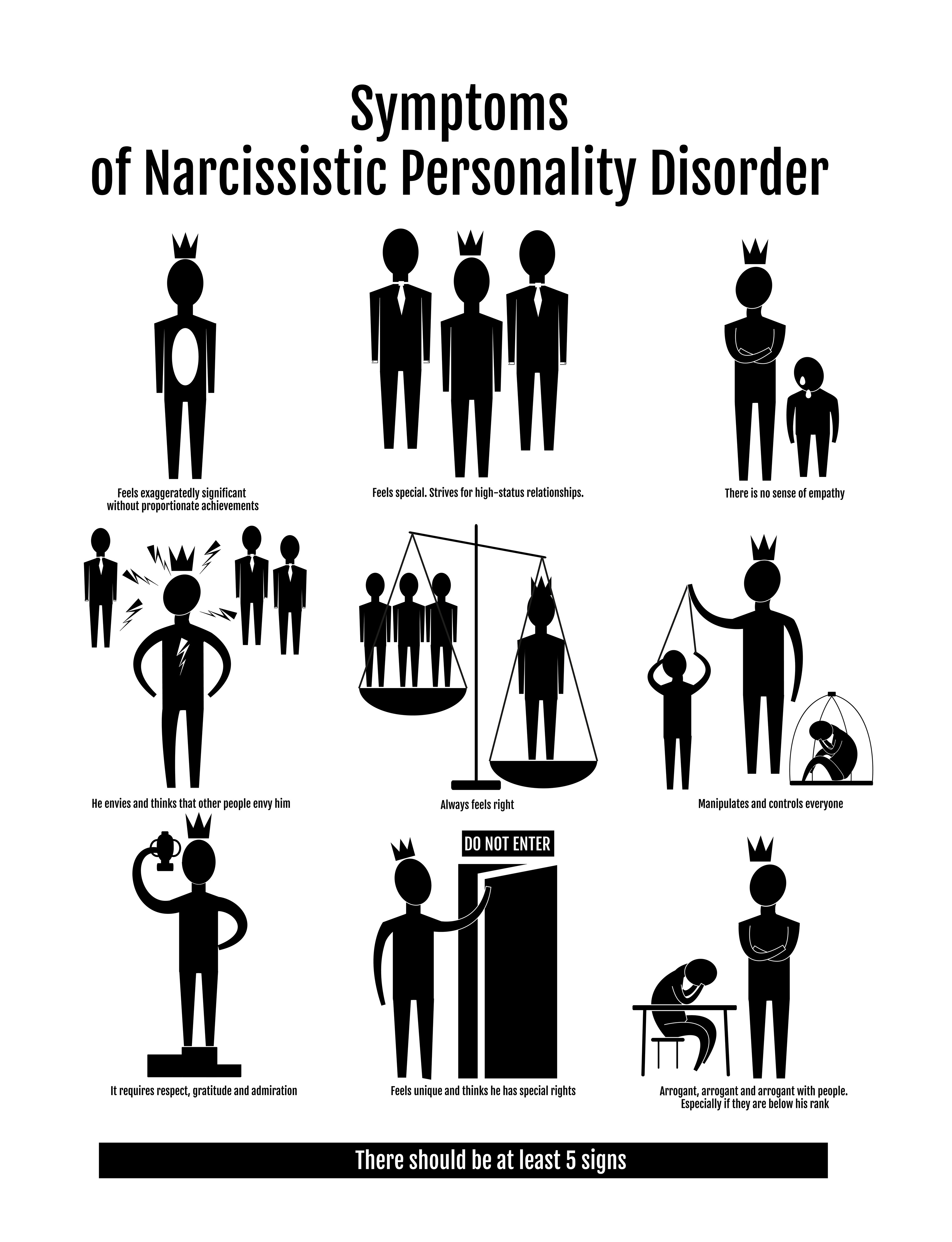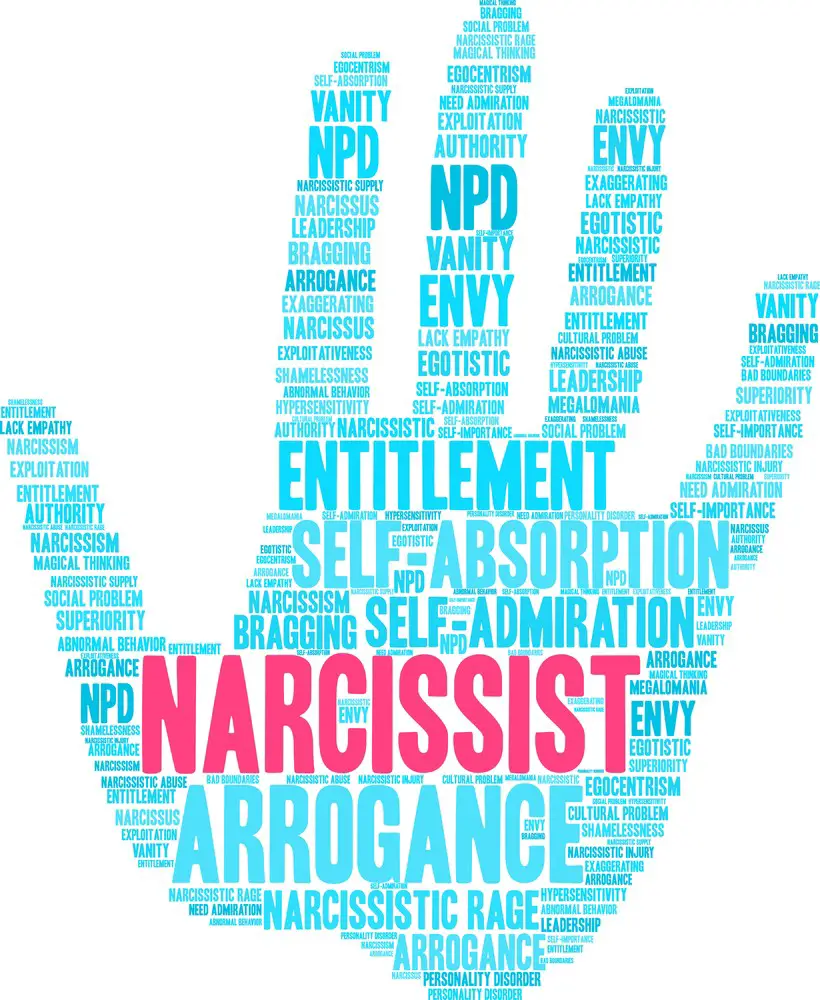As a BetterHelp affiliate, we receive compensation from BetterHelp if you purchase products or services through the links provided
Narcissism is a personality trait often associated with a sense of entitlement, a lack of empathy, and an excessive need for admiration. As individuals age, it’s natural to wonder if these traits might become more pronounced or diminish over time. Whether narcissists get worse with age is complex, as various factors come into play, including an individual’s personality and life experiences.
The aging process can be challenging for everyone, but it can be particularly distressing for narcissists. As they confront the inevitable decline of physical abilities and appearance, their need for validation and narcissistic supply may surge. Moreover, their relationships with others will likely become increasingly strained due to their behaviors and attitudes. As a result, the aging narcissist may experience significant mental health and well-being shifts.
Key Takeaways
- Narcissists may struggle with the aging process, leading to increased validation-seeking behaviors.
- Aging narcissists may face a decline in physical appearance and abilities, affecting their sense of self.
- The impact on mental health and relationships can be significant for narcissists as they age.

The Aging Narcissist
As time marches on, a narcissist might experience significant changes. For some, their narcissistic traits intensify, while others may become subtler in their ways. This begs the question: do narcissists get worse with age?
In the earlier stages, narcissists dazzle those around them with their undeniable charm and grandiose sense of self. They lead the charge in conversations, commanding the room with their presence. But as the years roll on, their self-absorption and thirst for admiration could evolve dramatically.
For some aging narcissists, the inevitable decline of physical and mental capabilities can be hard to swallow. They might cling to their youth, trying everything to maintain that feeling of significance. In these cases, narcissism might flare up, with behaviors such as gaslighting, manipulation, and emotional abuse becoming more rampant. Most will also get wrinkle treatments in New York or any other big city to appear younger. They will do anything to avoid facing the reality of aging.
Conversely, a few narcissists may develop a newfound perspective. They could start reflecting on their lives and come to terms with their less-than-perfect pasts. This introspection could lead to a more empathic and compassionate outlook on life. Though rare, some narcissists might begin to display genuine caring towards others, stepping away from their “me, me, and I” mentality.
Now, let’s not forget that age can bring wisdom. Some narcissists, witnessing their actions’ negative consequences, may tone down their narcissistic tendencies. This self-awareness typically results in a moderated approach to relationships and social interactions.
In conclusion, the aging narcissist’s trajectory is not set in stone. Time can exacerbate their need for admiration or reshape their self-centeredness into a more self-aware disposition. No two narcissists are the same, so buckle up – it’s a fascinating journey to observe.
Impact on Relationships
Narcissists often wreak havoc on relationships as they age. Their insatiable need for attention and admiration means they constantly push boundaries, often resorting to manipulation and abuse. Unfortunately, these actions can create emotional wounds that last a lifetime, especially for those closest to them.
As the narcissists grow older, a disturbing pattern tends to emerge. They maintain a sense of superiority while disregarding the feelings and well-being of those around them. Adult children of narcissists often face a cumbersome burden. The years of mistreatment leave emotional scars that make it difficult for these individuals to build healthy relationships or maintain boundaries with their parents.
The damage inflicted by a narcissist in a relationship often includes emotional and sometimes even physical abuse. As narcissists age and feel diminishing control, they may become more aggressive and vindictive. Such escalation in their behavior can create an intensely unhealthy environment, pushing loved ones further away. This in turn, leads to increased isolation for the aging narcissist.
To manage this worsening behavior, setting boundaries becomes crucial for those who find themselves in relationships with a narcissist. Maintaining a healthy distance and emotional detachment helps counteract the narcissist’s manipulation tactics. It’s important to remember that seeking professional help for dealing with a narcissist in a relationship is always a wise choice.
Despite being challenging, maintaining and establishing boundaries can lead to an improved quality of life for the narcissist’s loved ones and themselves. It creates a sense of balance and order, offering a chance for healthier interactions and mitigating the narcissist’s behavior’s harmful effects on relationships.
Changes in Behavior
As narcissists age, their behavior morphs, often exacerbating key traits that can make dealing with them more challenging. Rage, for instance, may become more frequent and intense. Older narcissists may struggle to regulate their emotions, leading to outbursts that can bewilder those around them.
Simultaneously, their capacity for empathy might seemingly evaporate. In contrast to their younger selves, older narcissists may disregard the feelings and needs of others with increased nonchalance. This growing disregard for the well-being of others may stoke feelings of isolation for the narcissist as people in their life struggle to maintain a connection.
Certain narcissistic traits may also become more pronounced with age. For example, an enduring need for admiration could escalate into an insatiable craving. Peers may become weary of constantly placating the narcissist’s ego, leading to more strained relationships.
Mood swings impart an added layer of complexity to the equation. As narcissists age, they may ricochet between emotional extremes more frequently and with less warning. Such instability can make it difficult for others to anticipate or defuse a confrontation.
Regarding manipulation, older narcissists might hone their skills to fine art. This tendency to manipulate could be exacerbated by the increasing loss of admiration and empathy in their social circles. To maintain control, the narcissist might use more cunning manipulation strategies to keep others in their orbit.
In a nutshell, the passage of time can sharpen the edges of a narcissist’s behavior while dulling the mechanisms that might mediate these changes. Recognizing and understanding these behavioral shifts is crucial to traverse the challenges they pose as narcissists grow older.
Mental Health and Well-being
It’s a common question: do narcissists get worse with age? As people age, their mental health and well-being often fluctuate, and narcissists are no exception. In some cases, they may appear to gain wisdom and insight, while others experience an exacerbation of their narcissistic tendencies.
For starters, let’s dive into the realm of mental health. As individuals age, they can be prone to bouts of depression stemming from factors such as physical changes or the loss of loved ones. Narcissists, in particular, might struggle when their self-perception is threatened, such as by signs of aging or retirement from a successful career. Confronted with their vulnerabilities, they might double down on their narcissistic persona, striving for attention and validation. This can ripple effect on mental well-being and even lead to a downward spiral.
On the other hand, therapy can play a vital role in mitigating some of these negative consequences. If a narcissist is open to seeking help from a qualified therapist, they can work to peel back the layers of their personality and potentially develop healthier coping mechanisms. However, the stark truth is that not all narcissists see the need for therapy or are willing to engage in self-reflection.
Dementia also comes into play, as it affects an individual’s memory and cognitive abilities with age. In some narcissists, the onset of dementia can exacerbate their feelings of grandiosity and entitlement. The diminished ability to understand the context and empathize may result in increasingly selfish and demanding behavior. Conversely, dementia can also humbly affect certain individuals, causing them to lose interest in their prior narcissistic pursuits.
In conclusion, the complex relationship between age, narcissism, and mental health is multifaceted, with no one-size-fits-all answer. Each case is unique, influenced by various factors such as genetics, environment, and personal experiences. The loved ones of an aging narcissist must remain observant, offer support if possible, and seek professional guidance when necessary.
Decline of Physical Appearance and Abilities
Aging, the inescapable reality, catches up with everyone eventually. The decline in their looks and physical abilities can be especially challenging for narcissists. Known for their vanity, they often go to great lengths to preserve their youthfulness. It’s as if time works against them, proving that mortal vulnerability lies beneath the carefully curated exterior.
There’s no denying that physical attractiveness dwindles with age. Wrinkles crease once-radiant faces, and once-taut skin begins to sag. No one is immune to these inevitable changes, not even the narcissist. As their once-glorious looks fade, they might invest heavily in anti-aging products or cosmetic surgery, desperately trying to rewind the clock. And while some procedures might offer temporary fixes, the passage of time is relentless and can’t be stopped.
Moreover, age-related decline is not limited to just physical appearance. As the years go by, the body loses its stamina, strength, and agility. Gone are the days when the narcissist could outshine others in sports or other physical pursuits. Witnessing these abilities can be hard to swallow, stirring insecurity and despair.
Despite the narcissist’s dedication to maintaining their facade, the world doesn’t revolve only around them. Friends and loved ones’ age, too. The narcissist may struggle with the fact that the people they once regarded as inferior now encounter similar challenges. For a narcissist, empathy can often be difficult to express genuinely, hindering their ability to find solace amid a community of peers.
Aging is a fact of life, and for the narcissist, embracing these changes gracefully can be a monumental task. However, it’s important to remember that everyone, narcissist or not, experiences a decline in physical appearance and abilities. Finding resilience in these changes may be difficult, but it is a natural part of the human experience.
Shifting Needs for Validation and Narcissistic Supply
As time passes, the needs and methods of narcissists seeking validation and attention can change. For some, age may cause their narcissistic tendencies to intensify, leaving them desperate for validation in an increasingly isolating world.
Narcissists are reliant on receiving a steady stream of narcissistic supply—the validation, admiration, and attention they crave. This comes from the people around them, who may unintentionally (or sometimes intentionally) feed their egos. Obtaining this supply might be easier when they’re younger, thanks to more social interactions and a wider circle of acquaintances.
However, As they age, they might feel progressively isolated or lonely. The sources of validation and attention they once enjoyed might dry up, leaving a persistent craving for anything they can latch onto. This can lead to unhealthy and often destructive behavior patterns as they desperately try to maintain self-importance.
One reason for this feeling of isolation is the natural tendency for people to withdraw from social situations as they get older. Friends and acquaintances might move away, and opportunities for social interactions might dwindle. At the same time, the narcissist’s long-standing patterns of manipulation and emotional abuse could push people away, intensifying their loneliness.
In response to this dwindling source of validation, narcissists might shift their tactics to maintain their narcissistic supply. They might become even more manipulative, demanding, and aggressive in their efforts to extract validation from those around them. This can result in an escalating cycle of toxic behavior that strains relationships and further alienates narcissists from the world around them.
So, while it’s not a given that narcissists will become worse with age, the shifting landscape of their needs for validation and narcissistic supply can potentially exacerbate their narcissistic traits. As they face increased loneliness and desperation, their behavior may become increasingly toxic, harmful, and isolating.

Impact on Personal and Social Identity
Narcissists tend to have a shaky sense of self and often struggle with identity issues. Their self-image and self-esteem can suffer as they age, increasing vulnerability. In an insistent quest for validation and attention, they may become more desperate in their attempts to bolster their fragile egos.
The aging process often makes it difficult for narcissists to maintain their self-esteem. Wrinkles, gray hair, and other signs of aging are undeniable evidence that time is passing. This realization can be unsettling for narcissists, reminding them of their mortality and vulnerability. Consequently, they may seek reassurance from others, sometimes resorting to manipulative tactics to gain praise and maintain their superiority.
Aging narcissists may lose friends or face dwindling support in social circles due to their self-absorbed behavior. As their charm and good looks fade, they might find it increasingly challenging to maintain relationships or attract new admirers. The resulting loneliness and isolation can exacerbate their vulnerability, compelling them to cling even harder to self-importance.
Identity assimilation plays a significant role in the aging narcissist’s struggles. As they grow older, they may constantly shift their narrative to fit their idealized self-image, rejecting any information that contradicts it. This perpetual need to distort reality creates a further disconnect between narcissists and those around them, eroding meaningful connections and intensifying their dependence on external validation.
In the end, time has a way of chipping away at the fragile facade that narcissists have built around themselves, leaving them even more susceptible to insecurity and self-doubt. As they attempt to cling to their grandiose self-images, their personal and social identities become increasingly vulnerable, fueling their narcissistic tendencies.

Narcissistic Personality Disorders and Their Influence
Ah, narcissism, that insidious personality trait, was so prevalent in today’s society. It sneaks into various relationships and interactions, leaving a trail of confusion and conflict. When it comes to narcissists, however, there’s more going on under the surface than meets the eye. Narcissistic Personality Disorder (NPD) is a serious mental health condition that can profoundly affect those around them. But does it worsen with age? Settle in, as we dive headfirst into the complexities of this fascinating disorder and its manifestations.
Narcissistic Personality Disorder (NPD) is characterized by self-centeredness, a need for admiration, and a lack of empathy for others. It’s no walk in the park, that’s for sure. The disorder presents itself in various forms, with two main types dominating the conversation: overt and covert. Overt narcissists stand out with their grandiose demeanor, often charming and confident. Covert narcissists maintain a more subtle and hidden facade – they might seem vulnerable, but don’t be fooled; they’re just as cunning and manipulative as their overt counterparts.
As time passes, age can play tricks on the mind and body. For some narcissists, these changes could amplify their narcissistic traits. As aging leads to decreased physical attractiveness or a loss of control, narcissists may struggle to maintain their inflated egos. Like a cat backed into a corner, they might lash out at those around them, becoming even more controlling and possessive.
On the other hand, old age can bring an air of introspection, a time for self-reflection and rumination on past actions. In the twilight, narcissists may experience a newfound empathy and understanding. There may be few and far between these cases, but they do occur – offering a glimmer of hope that change is possible.
There’s no denying that narcissistic personality disorders significantly influence those around them and society. As each experiences aging differently, the impact of time on someone with NPD remains as unpredictable as ever. Without knowing what lies hidden within the heart and mind, who can say whether a narcissist’s dysfunctional behavior will intensify or subside with age? One thing’s for sure, though: the study of narcissism and its many dimensions will continue to captivate and intrigue, leaving us in endless wonder at the complexities of the human psyche.

Coping Mechanisms and Strategies
Dealing with a narcissist can feel emotionally draining, but there are strategies to help manage the relationship and mitigate the negative impact. One such approach is understanding the root of the narcissist’s behavior, such as their dependency on external validation and their inability to cope with shame.
When narcissists feel threatened by shame, they may resort to projection, blaming others for their insecurities. Recognizing projection when it occurs can lessen its influence on you. Remember that such behavior isn’t personal; it’s a defense mechanism that narcissists employ to maintain their idealized self-image.
Another tactic narcissists regularly employ is mirroring. They may imitate the feelings and actions of others to gain approval and admiration. By noting when mirroring occurs, you can begin to discern the narcissist’s authentic persona from their fabricated one, allowing you to react with empathy and understanding.
Setting boundaries is crucial when dealing with a narcissist. It’s essential to assert your values and uphold your self-respect. Be firm and consistent in maintaining these boundaries while offering support and encouragement. Encourage open communication, but avoid getting caught in endless arguments or appeasing their grandiose self-image. Stay true to your feelings and needs.
In conclusion, coping with a narcissist may be challenging, but employing these strategies can make the relationship more manageable. By recognizing and understanding the root causes of their behavior, setting firm boundaries, and being mindful of tactics such as projection and mirroring, you’ll be better equipped to navigate the complexities of interacting with a narcissist. Remember, it’s important to prioritize your well-being and maintain a sense of self-worth in the face of narcissistic behavior.
The Dark Side of Aging Narcissism
Ah, the twilight years. Often thought of as a time for reflection and enjoying the fruits of a lifetime’s labor, these years can take an ugly turn for some. Narcissists, for example, may experience a worsening of their already troubling behavior as they age.
When it comes to aging narcissists, their grandiose ideas and false self seem to amplify with time. Instead of mellowing out, narcissists often dig their heels in deeper, making it more challenging for those around them – especially loved ones – to grapple with their manipulative behavior.
One reason is the increasingly distorted sense of self that blossoms with age. As they lose the ability to dazzle others with their physical appearance or skills, they cling desperately to their delusions of superiority. Hiding behind the false self, an aging narcissist may become more consumed by their need for attention, leading to more extreme attempts to hold onto the spotlight.
Now, some might wonder if all of this is worth shedding light on. The sad truth is, yes – the intensity of pathological narcissism indeed casts an ominous shadow on the aging process. As their once-lustrous armor begins to dull from the ravages of time, narcissists scramble to maintain control, often leading them to concoct elaborate schemes or stories designed to wow their audience and maintain their self-importance.
The complex cocktail that makes up an aging narcissist – grandiose ideas, delusions, false self, and pathological narcissism – creates a volatile mix. This can increase the propensity to lash out, manipulate others, and engage in abusive behavior. Their lack of empathy often prevents them from recognizing how their behavior impacts others.
Ultimately, it’s not a pretty picture for those in the orbit of an aging narcissist. Although it’s a tragedy that anyone must contend with such destructive behavior, understanding the underlying motivations can offer some solace. It may not erase the pain, but it might just provide a glimmer of hope for navigating the treacherous waters created by the dark side of aging narcissism.
Facing Limitations and The Narcissistic Collapse
When narcissists face limitations, anxiety and fear may gradually creep in. As they grow older, these limitations become all the more pressing, and they can no longer rely on their youthful charm or abilities. It’s important to note that time can be a bitter pill for narcissists, as they often have grandiose perceptions of themselves and their capabilities.
As limitations accumulate, so do feelings of bitterness and resentment. The narcissist may struggle with the reality that their once effortless charm and appeal are not as potent as they used to be. This realization may create a sense of unbearable frustration, and they may feel an even greater need to control and manipulate others to cling to their past glory.
An air of entitlement that seemed natural during their prime years may be scrutinized. Friends and family may grow weary of being mistreated and taken for granted, leaving the narcissist to face the consequences of their behavior. Hence, isolation and a lack of control can often exacerbate the situation.
With the weight of these emotions and the mounting pressure of life’s realities, the narcissist may eventually undergo a “narcissistic collapse.” This term refers to an emotional and psychological crisis unique to individuals suffering from narcissistic personality disorder. When all their carefully constructed facades fail to prevent the onslaught of self-doubt, panic may engulf them.
During a narcissistic collapse, the individual might finally come face to face with their fears and limitations. This may lead to a complete breakdown of the defense mechanisms they have built to protect their ego from the harsh truth of their inadequacy, forcing them to confront the vulnerability they have been so diligently trying to avoid.
In conclusion, it’s essential to recognize that narcissists face limitations that may worsen with age. The possibility of a narcissistic collapse should not be taken lightly, as it exposes a deep-seated fear and vulnerability that can have severe consequences on the individual and those around them.
Discrimination, Prejudice, and Aggression in Aging Narcissists
As narcissists age, their penchant for discrimination, prejudice, and aggression might escalate. Often blinded by their inflated self-image, they may exhibit aggressive and hostile behaviors towards those they perceive as threatening. Unraveling the tangled web of ageism, sexism, racism, scapegoats, and bigotry, we find that aging narcissists might exacerbate these social ills.
Ageism plays a significant role as narcissists age. Struggling with losing their youthful charm and allure, they may project their insecurities onto others. Judging people based on age, they might act condescendingly towards younger individuals while displaying resentment or envy towards their older peers.
Sexism and racism can also lurk in the shadows of a narcissist’s mind. To see themselves at the top of the social hierarchy, they might belittle or discriminate against individuals of the opposite sex or those from different racial backgrounds. Narcissists may cling to outdated stereotypes and beliefs, using these biases to justify their mistreatment of others.
Scapegoats are all too familiar to aging narcissists. It’s never their fault when things go awry, so they seek out people to take the blame. In doing so, they maintain their illusion of superiority by deflecting responsibility and protecting their fragile egos. Unfortunately, this behavior can tear apart relationships and lead to a mounting sense of isolation.
Finally, bigotry can manifest itself in various forms for aging narcissists. Fueled by their incessant need to feel superior, they may unfairly generalize and discriminate against those with differing beliefs, values, or backgrounds. By preying on the shortcomings of others, narcissists seek to reinforce their self-created pedestal, immune to humility and empathy.
In conclusion, discrimination, prejudice, and aggression might heighten as narcissists grow older. Ageism, sexism, racism, scapegoats, and bigotry are entwined in narcissists’ psyches, impacting their relationships, well-being, and overall mental health. As they age, it becomes increasingly important to recognize these tendencies and seek appropriate help to mitigate their damaging effects.
Frequently Asked Questions
Do narcissistic traits tend to worsen over time?
Indeed, narcissistic traits can worsen over time, especially if left unchecked. As people age, they may become more set in their ways, further reinforcing their narcissistic tendencies. However, it’s important to remember that this isn’t guaranteed and varies between individuals.
Are there factors that exacerbate narcissism in older age?
Certainly! Factors such as increased isolation, lack of social support, and erosion of accomplishments or status might exacerbate narcissism in older individuals. It’s also possible that underlying mental health issues, which tend to be more prevalent in later life, could contribute to worsening narcissistic traits.
How does aging affect the behavior of narcissists?
Aging can lead to shifts in narcissists’ behavior, potentially making them even more self-absorbed and resistant to change. They might also become increasingly manipulative as they try to maintain their inflated self-image and control over others. It’s worth noting that this process can be gradual and may not be immediately noticeable.
Is there a connection between aging and the severity of narcissistic personality disorder?
While there isn’t a direct correlation between aging and the severity of narcissistic personality disorder (NPD), it’s possible that the challenges and changes associated with aging can exacerbate symptoms. This could lead to more severe expressions of NPD over time, but this isn’t a certainty for all individuals.
Do aging narcissists experience increased difficulty in maintaining relationships?
As aging narcissists become more entrenched in their ways, they may find it harder to maintain relationships. Their heightened self-absorption and lack of empathy could push people away, making it difficult to form deep connections. This can be particularly problematic in older age when support systems and companionship are increasingly important.
What role does the aging process play in the development of narcissistic traits?
The aging process doesn’t directly cause narcissistic traits but can amplify pre-existing tendencies or create conditions that nurture their growth. Factors like isolation, loss of status, and mental health struggles can all contribute to developing or intensifying narcissistic traits in older age.
- Breaking the Silence: Why Men’s Mental Health Matters More Than Ever - April 15, 2025
- How to Transform a Home’s Patio Space into a Relaxing Space - March 23, 2025
- 5 Strategies to Use a Cell Phone to Help Manage Your Stress - March 23, 2025
This site contains affiliate links to products. We will receive a commission for purchases made through these links.





